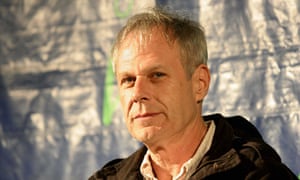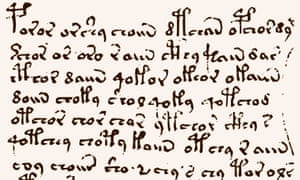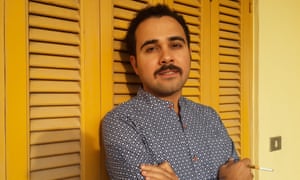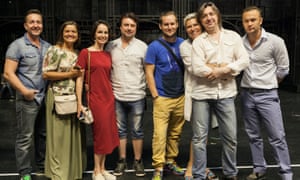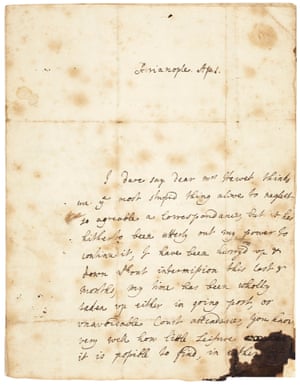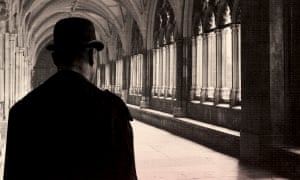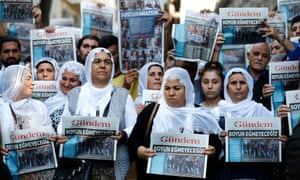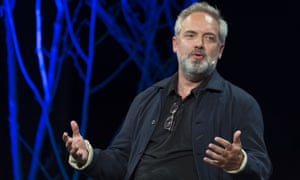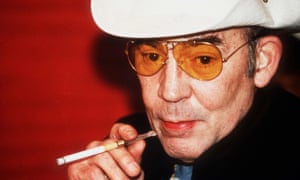Marie Lu is gearing up for the release of her final novel in her Young Elites series — The Midnight Star — which drops Oct. 11. Adeline Amouteru’s story continues in this last installment. She still reigns as the White Wolf, but she’s getting crueler by the conquest, and her darkness threatens to spin out of control. But when a new enemy emerges, Adelina and her Roses must ally with the Daggers — until it’s not clear whether the new threat or the new alliance is the real thing to fear.
To celebrate this thrilling conclusion to Lu’s best-selling series, EW is excited to share an exclusive excerpt from The Midnight Star. And be sure to check out Lu’s tour dates below to see if she’s coming to a city near you on her fall book tour.
Marie Lu’s The Midnight Star Tour Dates
Tuesday, October 11th
6:00 PM
Books of Wonder
18 W 18th St
New York, NY 10011
Wednesday, October 12th
7:00 PM
Gibson’s Bookstore
45 S Main St
Concord, NH 03301
Thursday, October 13th
7:00 PM
Barnes & Noble
7851 L Tysons Corner Center
Tysons Corner, VA
Friday, October 14th
7:00 PM
Quail Ridge Books
4381-105 Lassiter at North Hills Ave
Raleigh, NC 27609
Saturday, October 15th
2:00 PM
Books A Million
2605 W Osceola Pkwy,
Kissimmee, FL 34741
Monday, October 17th
7:00 PM
with Margaret Stohl
BookPeople
603 N Lamar Blvd
Austin, TX 78703
Tuesday, October 18th
6:30 PM
Berkeley Public Library
North Berkeley Branch
1170 The Alameda (at Hopkins)
Berkeley, CA 94707
Wednesday, October 19th
7:00 PM
Keplers
1010 El Camino Real,
Menlo Park, CA 94025
Friday, October 21st
4:30 PM
Lake Forest Bookstore
662 N Western Ave,
Lake Forest, IL 60045
Saturday, October 22nd
Wisconsin Book Festival
Madison, WI
Sunday, October 23rd
2:00 PM
With Kiersten White, Catherine Egan and Morgan Rhodes
Chapters Brampton
Market Hall, 52 Quarry Edge Drive
Brampton, ON
Tuesday, October 25th
7:30 PM
With Amie Kaufman and Jay Kristoff
Mysterious Galaxy
5943 Balboa Avenue #100
San Diego, CA 92111
Excerpt from The Midnight Star by Marie Lu
Chapter 2
Raffaele Laurent Bessette
The sound of the surf outside reminds Raffaele of stormy nights at the Estenzian harbor. Here in the Sunland nation of Tamoura, though, there are no canals, no gondolas that have drifted away from their moorings to bob alongside the stone walls. There is only a beach of red and gold sand, and land dotted with low shrubs and sparse trees. High on a hill, a sprawling palace overlooks the ocean, its silhouette black in the night, its famous entrance illuminated by the glow of lanterns.
Tonight, a warm early spring breeze comes in through the windows of one of the palace apartments, and the candles burn low. Enzo Valenciano sits on a gilded chair, his figure hunched over, his arms resting on his knees. Waves of his dark hair fall over his face, and his jaw is clenched tight. His eyes stay shut in pain, his cheeks moist with tears.
Raffaele kneels before him, carefully undoing the white cloth bandages that run all the way up to the prince’s elbows. The smell of burned flesh and cloyingly sweet ointment fills the room. Every time Raffaele pulls the bandage from a segment of Enzo’s arm, tugging on the wounded skin as it goes, Enzo’s jaw tightens. His shirt hangs loose, slick with sweat. Raffaele winds the bandages in a roll. He can sense the agony hovering over the prince, and the feeling scalds his own heart as surely as if he were wounded himself.
Underneath the bandages, Enzo’s arms are a mass of burns that never seem to heal. The original scars and wounds that had always covered the prince’s hands have now spread upward, aggravated by his spectacular display during the battle against Adelina in the Estenzian harbor. Destroying almost all of Queen Maeve’s Beldish navy with fire has taken its toll.
A piece of skin tears away with the bandages. Enzo utters a soft groan.
Raffaele flinches at the sight of the charred flesh. “Do you want to rest for a moment?” he asks.
“No,” Enzo replies through clenched teeth.
Raffaele obeys. Slowly, painstakingly, he removes the last of the bandages from Enzo’s right arm. Both of the prince’s arms are now exposed.
Raffaele lets out a sigh, then reaches for the bowl of cool, clean water sitting beside him. He places the bowl in Enzo’s lap. “Here,” he says. “Soak.”
Enzo eases his arms into the cool water. He slowly exhales. They sit in silence for a while, letting the minutes drag on. Raffaele watches Enzo closely. Day by day, the prince has grown more withdrawn, his eyes turned frequently and longingly to the sea. There is a new energy in the air that Raffaele cannot quite put his finger on.
“You still feel her pull?” Raffaele asks at last.
Enzo nods. He turns instinctively toward the window again, in the direction of the ocean. Another long moment passes before he answers. “Some days, it is quiet,” he says. “Not tonight.”
Raffaele waits for him to continue, but Enzo falls back into his deep silence again, his attention still on the ocean outside. Raffaele wonders whom Enzo is thinking about. It is not Adelina, but a girl long gone, from a happier time in his past.
After a while, Raffaele takes the bowl of water away and gently dabs Enzo’s arms dry, then applies a layer of ointment to the burned skin. It is an old salve that Raffaele used to request back at the Fortunata Court, when Enzo would visit him at night to have his hands bandaged. Now the court is gone. Queen Maeve has returned to Beldain to lick her wounds and restore her navy. And the Daggers have come here, to Tamoura—what is left of Tamoura, at any rate. Adelina’s Inquisitors dot the hills in northern Tamoura, holding strong.
“Any news of Adelina?” Enzo asks as Raffaele reaches for a fresh set of bandages.
“Dumor’s capital has fallen to her army,” Raffaele replies. “She rules all of the Sealands now.”
Enzo looks back to the sea, as if searching again for the eternal pull between him and the White Wolf, and his gaze seems very far away. “It won’t be long before her attention returns here, to the rest of Tamoura,” he says at last.
“I wouldn’t be surprised if her ships show up next at our borders,” Raffaele agrees.
“Will the Golden Triad meet us tomorrow?”
“Yes.” Raffaele glances up at the prince. “The Tamouran royals say their army is still weakened from Adelina’s last siege. They want to try negotiating with her again.”
Enzo gingerly moves the fingers of his left hand, then winces. “And what do you think of it?”
“It will be a waste of time.” Raffaele shakes his head. “Adelina turned down their last attempt without a moment’s hesitation. There’s nothing to barter—what can the royals offer her that she cannot simply take by force?”
Silence falls over them again, perhaps the only answer to Raffaele’s question. As Raffaele continues to wrap Enzo’s arms in fresh bandages, he tries to ignore the waves outside. The sound of the sea beyond the window. A pair of candles burning bright in the darkness. A knock on the door.
The memory comes unbidden and unrelenting, breaking through the walls Raffaele has put around his heart since Enzo’s death and resurrection. He is no longer tending to the prince’s wounds but standing, waiting, frightened in his bedchamber at the Fortunata Court years ago, looking out at a sea of masked people.
It seemed as if the entire city had turned out for Raffaele’s debut. Noblemen and noblewomen, their robes of Tamouran silks and Kenettran lace, fanned out across the room, their faces all partially hidden behind colorful half masks, their laughter mingling with the sounds of clinking glass and shuffling slippers. Other consorts moved amongst them, silent and graceful, serving drinks and dishes of iced grapes.
Raffaele stood in the center of the room, a demure youth dressed and groomed to the height of perfection, his hair a curtain of dark satin, his gold-and-white robes flowing, black powder lining the rims of his jewel-toned eyes, staring out at a sea of curious bidders. He remembers how his hands trembled, how he’d pressed one against the other to steady them. He had been trained in the types of expressions to allow on his face, a thousand different subtleties of the lips and brows and cheeks and eyes, regardless of whether they reflected his actual emotions. So, in this moment, his expression had been one of serene calm, of shy allure and gentle joy, silent as snow, absent of his fear.
Now and then, the energy seemed to shift in the room. Raffaele turned his head mechanically in its direction, unsure of what he was sensing. He thought at first that perhaps his mind was playing tricks on him—until he realized that the energy focused on a young stranger gliding between the crowds. Raffaele’s eyes followed him, mesmerized by the power that seemed to travel in his wake.
The bidding started high and spiraled higher. It soared until Raffaele could no longer make out the numbers, the sights and sounds around him beginning to blur. Other consorts whispered to one another in the audience. He had never heard such amounts tossed back and forth at an auction before, and the strangeness of it all made his heart pound faster, his hands shake harder. At this rate, he could never live up to the winner’s payment.
And then, as the bidding began to trickle down to a few—a young manservant hidden in the crowd doubled the highest offer.
Raffaele’s calm expression wavered for the first time as murmurs rippled through the room. The madam called again for an offer to top it, but none did. Raffaele stood in the silence, willing himself to remain still as the manservant won the auction.
That evening, Raffaele lit a few candles with unsteady hands and then sat alone on the edge of his bed. The blankets were silken, trimmed with gold thread and lace, and the scent of night lilies lingered in the air. The minutes dragged on. He listened for the sound of footsteps approaching his chambers and repeated to himself lessons that older consorts had given him over the years.
After what seemed like an eternity, he heard the sound he had been waiting for in the hall outside. Moments later, there was a soft knock on the door.
It will be all right, Raffaele whispered, unsure of the truth of these words. He got up and raised his voice. “Come in, please.”
A maid pushed the door open. Behind her, a masked young man walked into his chambers with the grace of a seasoned predator. The door closed behind him, right as he reached up to remove the mask from his face.
Raffaele’s eyes widened in surprise. This was the same stranger he’d noticed in the crowd. He realized, embarrassed, that the stranger was quite handsome—dark curls of hair tied back into a low tail, long black lashes framing his eyes, scarlet slashes in his irises. He stood tall, and he did not smile. The energy Raffaele had sensed during the bidding now enveloped the stranger in layers. Fire. Flames. Ambition. Raffaele flushed. He knew he should be inviting the stranger to come closer, to sit on the bed. But, in this moment, he couldn’t think.
The young man stepped forward. When he stopped before Raffaele, he folded his hands behind his back and nodded once. Raffaele felt the energy shift again, beckoning at him, and he couldn’t help but return the stranger’s gaze. Raffaele forced himself to give the young man a smile, one he had been trained to give for years.
The stranger spoke first. “You noticed me in the crowd,” he said. “I saw your eyes following me around the room. Why is that?”
“I suppose I was drawn to you,” Raffaele replied, turning his eyes down and letting the heat rise to his cheeks again. “What is your name, sir?”
“Enzo Valenciano.” The stranger’s voice was soft and deep, silk hiding steel.
Raffaele’s eyes shot back up to him. Enzo Valenciano. Was that not the name of the disgraced prince of Kenettra? Only now, in the dim light of the chamber, did Raffaele realize that the boy’s hair glinted with a hint of deep red, so deep it looked black. A marking.
The former crown prince.
“Your Highness?” Raffaele whispered, so startled that he didn’t think to bow again.
The young man nodded. “And I’m afraid I have no intention of fulfilling your debut night.”
The scene evaporates as a knock sounds on the door. Raffaele and Enzo look over at it in unison and Raffaele lets out a long breath, pushing the memory to the back of his mind as he puts down the bandages. “Yes?” he calls out.
“Raffaele?” a timid voice answers. “It’s me.”
He folds his hands into his sleeves. “Come in.”
The door opens, and Violetta steps hesitantly inside. Her eyes first meet Raffaele’s, then dart to where Enzo sits with his elbows leaning against his knees. “I’m sorry to interrupt,” she says. “Raffaele, something strange is happening down by the shore. I thought you might want to have a look.”
Raffaele listens with a frown. So, Violetta has sensed something ominous as well. She looks pale tonight, her olive skin ashen, her full lips pulled into a tight line, hair secured behind a Tamouran wrap. She had found the Daggers with her power almost a year ago, all on her own. It’d taken her a week to find the words to tell Raffaele what had happened between her and her sister, then another week still before she begged them through her tears to find a way to help Adelina. Since then, she has stayed at Raffaele’s side, working with him as he tested her alignments and taught her how to concentrate her ability to sense others’ energy. She was a good student. A fantastic student.
She reminds him so much of Adelina. If he let himself, Raffaele could imagine that he was staring at a younger version of the Queen of the Sealands, before she turned her back. Before she was beyond help. The thought always saddened him. It is my fault, what Adelina has become. My fault that it is too late.
Raffaele nods at Violetta. “I’ll come in a moment. Wait for me outside.”
As Violetta retreats to the hallway, he finishes bandaging Enzo’s arms, then rubs his own neck in exhaustion. Too many nights in a row he’s spent like this, weeks that stretched into months, all trying in vain to repair Enzo’s wounds. But every time they began to heal, they would worsen again. “Try to sleep,” Raffaele tells him.
Enzo doesn’t respond. His face is drawn, pale from the pain. He is both here and not.
How long ago was it that they had first lost him in the arena? Two years? It seems a lifetime ago, eons, since the last time Raffaele had seen his prince truly alive, the fire in him burning bright and scarlet. He does not want to give Enzo more reason to suffer right now, to let him know how much his presence—half in the living realm, half in the Underworld—hurts those who love him. Instead, Raffaele walks to the door and quietly lets himself out.
The night is warm, a prelude to Sunland summers, and the heat from the day still lingers in the corridors. Raffaele and Violetta walk in silence under the lanterns, passing through the light and the shadows. At each door, he can sense the energy of every one of his Daggers staying inside the apartments. Michel, who after Gemma’s death has locked himself away for days at a time, losing himself in his paintings. Lucent, whose chamber has a ripple of disturbance in it. Raffaele can sense that she is still awake, perhaps gazing out of her bedchamber window down at the shores. Lucent’s bones have continued to hollow, and now she aches constantly, a development that has made her bitter and short-tempered. Maeve had stayed at first, begging Lucent to return to Beldain with her, even tried bribing and commanding her—but Lucent had refused. She would remain with the Daggers and fight alongside them until her dying breath. After a while, Maeve was forced to lead her soldiers home. But the Beldish queen’s letters still arrive weekly, asking about Lucent’s health, sometimes sending along herbs and medicines. Nothing has helped. Raffaele knows it will never help, for Lucent’s illness is caused by something deep within her own energy.
The last chamber once belonged to Leo, the bald boy whom Raffaele had recently recruited to the Daggers, who had wielded the power to poison. Now the chamber sits empty. Leo died a month earlier. The doctor told Raffaele that it was because of a lingering lung infection. But Raffaele wonders about another possible reason—because Leo’s body had turned on itself, poisoning him from within.
What weakness will soon manifest in him?
“I heard about Adelina’s latest conquest,” Violetta says when they finally reach the stairway leading out of the palace.
Raffaele only nods.
Violetta glances at him furtively. “Do you think … ?”
How hard she tries. Raffaele can feel his heart reaching out to her, wishing to comfort her, but all he can do is take her hand and soothe her temporarily with a tug of her heartstrings. He shakes his head.
“But—I hear she is offering generous payments to the citizens of Dumor,” Violetta replies. “She’s been more generous than she could be. Perhaps if we could only find a way to—”
“She is beyond help,” Raffaele says softly. An answer he has given many times. He is not certain that he believes it, not entirely, but he cannot bear to raise Violetta’s hopes only to see them crushed. “I’m sorry. We need to concentrate on defending Tamoura against Adelina’s next move. We must make a stand somewhere.”
Violetta looks back toward the shoreline and nods. “Of course,” she says, as if convincing herself.
She is not like the others. She aligns with gems, of course— with fear, empathy, and joy—but she has no markings to speak of. Her ability to take away others’ powers makes him uneasy. And yet, Raffaele cannot help feeling a bond with her, a comfort in knowing that she, too, can feel the world around her.
None of the three moons nor any stars are visible tonight; only clouds blanket the sky. Raffaele offers Violetta his arm as they pick their way carefully down the stony path. A hint of charge lingers in the warm winds, prickling his skin. As they make their way around the edge of the estate, the shore comes into view, a line of white foam crashing into black space.
Now he senses what had troubled Violetta. Right along the shore where the sand turns cold and wet, the feeling is incredibly strong, as if all the strings in the world were pulled tight. The waves spray him with flecks of salt water. The night is so dark that they cannot make out any other details around them. Large, looming masses of rock lie nearby, nothing more than black silhouettes. Raffaele stares at them, feeling a sense of dread. There is a pungent scent in the air.
Something is wrong.
“There is death here,” Violetta whispers, her hand quivering against Raffaele’s arm. When he looks at her, he notices that her eyes seem haunted, the same look she has whenever she talks about Adelina.
Raffaele scans the horizon. Yes, something is very wrong, an unnatural energy permeating the air. There is so much of it, he cannot tell where it is coming from. His eyes settle on a dark patch far in the distance. He stares at it for a while.
A series of lightning streaks breaks through the sky, carving trails from the clouds to the sea. Violetta flinches, waiting for the thunderclap to follow, but there is none, and the silence raises the hairs on the back of Raffaele’s neck. Finally, after an eternity, a low rumble shakes the ground. His eyes travel down to the waves crashing along the shore, then stop again on the black silhouettes of rock.
The lightning flashes again. This time, the glow lights up the shore for a brief moment. Raffaele steps backward, taking in the sight.
The black silhouettes are not rocks at all. They are baliras, at least a dozen of them, beached and dead.
Violetta’s hands fly to her mouth. For a moment, all Raffaele can do is stay where he is. Many sailors told stories about where baliras went when they died—some said they would go far out into the open ocean, where they would swim lower and lower until they sank to the depths of the Underworld. Others said they would leap out of the water and fly higher and higher, until they were swallowed up by the clouds. The occasional rib bone washed ashore, bleached white. But never had he seen a dead balira in the flesh before. Certainly not like this.
“Don’t come closer,” Raffaele whispers to Violetta. The smell in the air grows more pungent as he draws near, now unmistakably the smell of rotting flesh. As he reaches the first balira, he extends a hand out toward it. He hesitates, then places his fingers gently against its body.
The beast twitches once. This one is just an infant, and it is not dead yet.
Raffaele’s throat tightens, and tears fill his eyes. Something terrible killed these creatures. He can still feel the poisonous energy coursing through its veins, can sense its weakness as it takes another low, rasping gasp of air.
“Raffaele,” Violetta calls out. When he looks over his shoulder, he sees her wading into the waves as they break against the beach. The hem of her dress is soaked, and she is quaking like a leaf. Get out of there, Raffaele wants to warn her.
“This feels like Adelina’s energy,” Violetta finally says.
Raffaele takes a hesitant step toward the ocean, then another. He walks forward until his slippers sink into wet sand. He sucks his breath in sharply.
The water is cold in a way that he has never felt before, cold like death. A thousand threads of energy tug at his feet as the water recedes, as if each one were barbed with tiny hooks, seeking a living being. It sends his skin crawling in the same way a rotting fruit filled with maggots would. The ocean is full of poison, deep and dark and vile. Beneath it churns a layer of energy that is furious and frightening, something he had only once felt in Adelina. He thinks of Enzo’s strange distraction tonight, the faraway look in his half-alive eyes. The way he seemed drawn to the ocean. Raffaele remembers the storm that raged on the night when they’d brought Enzo back from the depths of the sea, where the edge of the living world ended and the world of the dead began.
Beside him, Violetta remains frozen in place as the water sways against her legs.
Raffaele takes a few more steps into the ocean, until the waves come up to his waist. The cold water numbs him. He looks up again to where the silent lightning storm rages, and tears begin to spill down his cheeks.
Indeed, this feels like Adelina’s energy. Like fear and fury. It is energy from another realm, threads from beneath the surface, an immortal place never meant to be disturbed. Raffaele trembles.
Something is poisoning the world.
